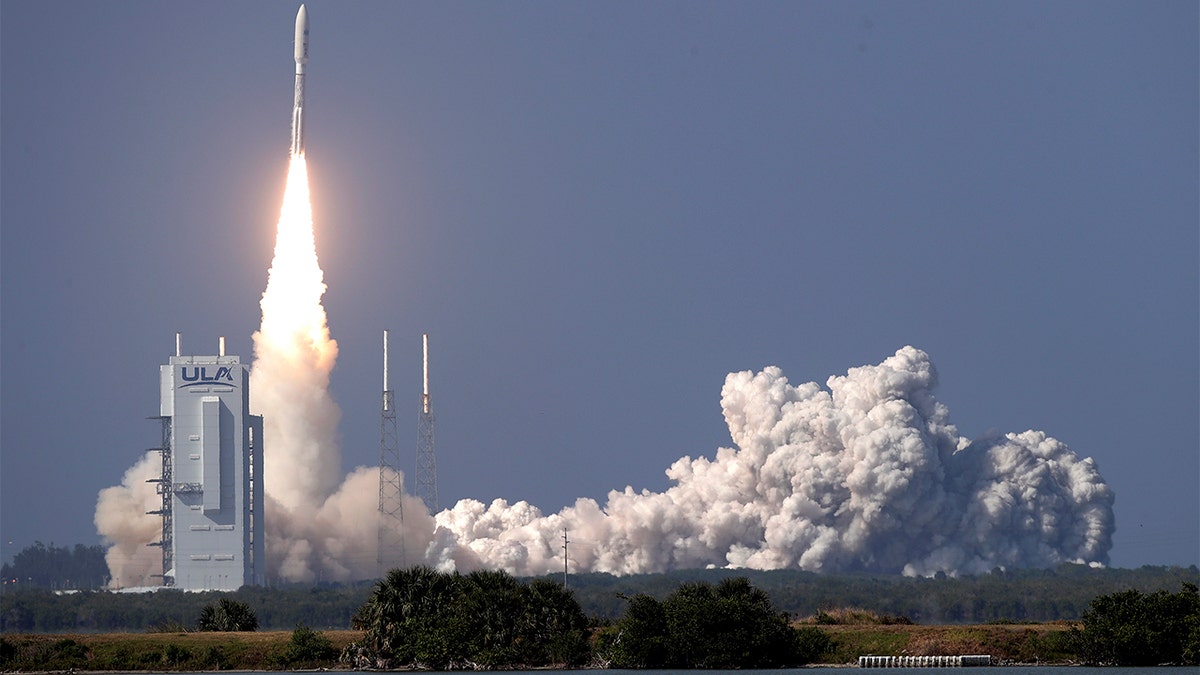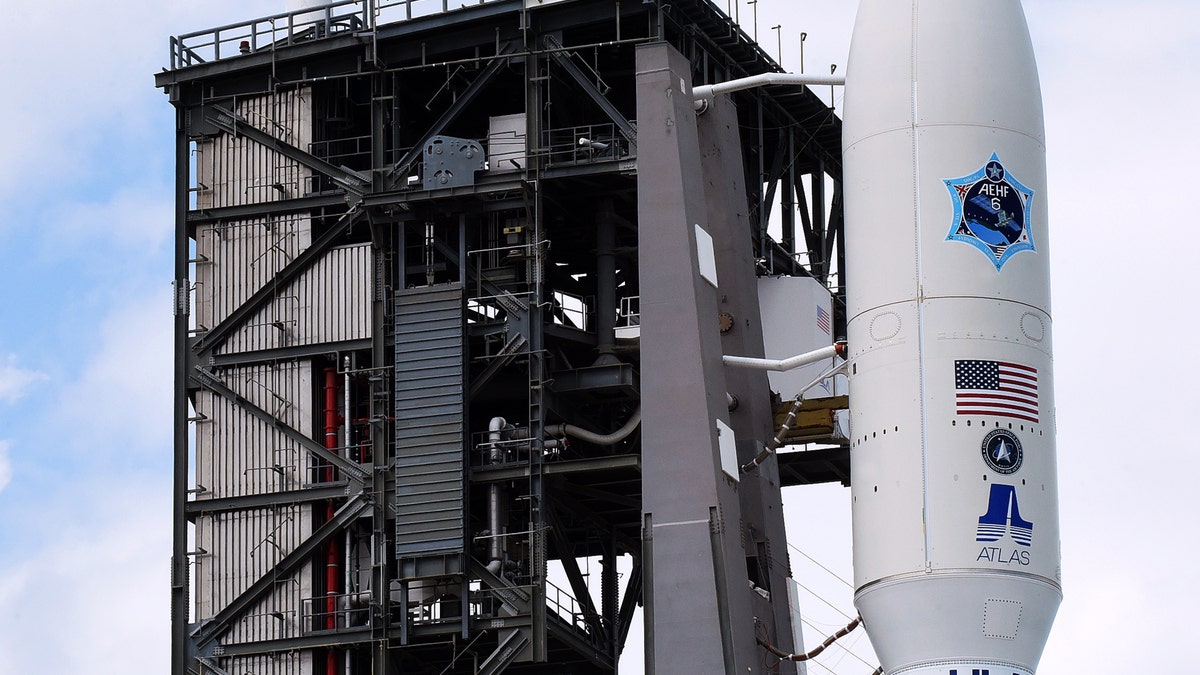Fox News Flash top headlines for March 25
Fox News Flash top headlines are here. Check out what's clicking on Foxnews.com.
The Space Force made its first launch on Thursday when the U.S. military's Advanced Extremely High Frequency (AEHF-6) satellite lifted off from Cape Canaveral Air Force Station.
The satellite blasted into the Florida sky atop a United Launch Alliance (ULA) Atlas V 551 rocket at 4:18 p.m. ET. The launch window had opened at 2:57 p.m. ET, but the launch time was pushed back while engineers dealt with a ground hydraulics issue.
AEHF-6 is the sixth and final satellite in the Space Force’s AEHF constellation. “AEHF satellites provide global, survivable, protected communications capabilities for strategic command and tactical warfighters operating on ground, sea and air platforms,” ULA explained on its website.
AMID CORONAVIRUS OUTBREAK, SPACEX LAUNCH OF ARGENTINIAN SATELLITE POSTPONED
The AEHF-6 proceeded despite the fallout from the coronavirus outbreak. A SpaceX satellite launch that had been scheduled for later this month has been postponed amid the pandemic.

A United Launch Alliance Atlas V rocket lifts off from launch complex 41 at the Cape Canaveral Air Force Station with a payload of a high frequency satellite Thursday, March 26, 2020, in Cape Canaveral, Fla. Built by Lockheed Martin, this U.S. military spacecraft will provide highly-secure communications. (AP Photo/John Raoux)
The SAOCOM1B satellite is being launched for Argentina’s Space Agency, the Comisión Nacional de Actividades Espaciales (CONAE). The launch atop a SpaceX Falcon 9 rocket had originally been scheduled for March 30 at Cape Canaveral Air Force Station.
Argentinian officials cited travel restrictions as the reason for the delayed launch of the Earth observation satellite.
CORONAVIRUS MAY DELAY NASA'S RETURN TO THE MOON
The impact of the coronavirus outbreak on space exploration programs is being closely followed. Earlier this month, for example, the European Space Agency and the Russian space agency Roscosmos announced that the launch of the second ExoMars mission is being postponed to 2022, in part because of the pandemic.

CAPE CANAVERAL, FLORIDA - MARCH 25, 2020: A United Launch Alliance Atlas V rocket with an Advanced Extremely High Frequency (AEHF) military communications satellite for a payload is seen the day before its scheduled March 26, 2020 launch at Cape Canaveral Air Force Station. (Paul Hennessy / Echoes Wire/Barcroft Media via Getty Images)
The European Space Agency also said Tuesday that it is putting eight of its spacecraft into hibernation as it scales down operations during the coronavirus outbreak.
CLICK HERE TO GET THE FOX NEWS APP
NASA has also temporarily suspended work on the $10 billion James Webb Space Telescope in California due to the coronavirus, putting its spring 2021 target launch date in jeopardy.
Follow James Rogers on Twitter @jamesjrogers.









































